
Viana do Castelo: Portugal's Northern Gem
Nestled on the banks of the Lima River, Viana do Castelo is a charming city that offers a perfect blend of history, culture, and natural beauty. Known for its picturesque landscapes and rich maritime heritage, this northern Portuguese city is an ideal destination for those seeking an authentic experience. Stroll through the historic center where you will find beautiful examples of Manueline, Renaissance, and Baroque architecture. Key highlights include the Praça da República, the heart of the city, and the stunning Santa Luzia Basilica, perched on a hilltop with panoramic views that are worth the climb. Viana do Castelo is also famed for its vibrant festivals, particularly the Romaria de Nossa Senhora da Agonia in August. This colorful event showcases traditional costumes, music, and dance, providing a deep dive into local culture. The city's close proximity to the Atlantic Ocean means you're never far from a pristine beach, perfect for surfing, sunbathing, or simply unwinding. For food enthusiasts, Viana do Castelo offers a delectable taste of Northern Portuguese cuisine. Savor fresh seafood dishes, local pastries, and the region's renowned wines in cozy, family-run restaurants. Whether you're exploring the scenic coastal paths, visiting the local museums, or just soaking up the atmosphere, Viana do Castelo promises a memorable and enriching travel experience.
Local tips in Viana do Castelo
- Visit the Santa Luzia Basilica early in the morning or late afternoon for the best views and fewer crowds.
- Try local delicacy 'Arroz de Sarrabulho', a rice dish made with pork blood and spices, for an authentic culinary experience.
- If visiting in August, don't miss the Romaria de Nossa Senhora da Agonia festival for a true taste of local culture.
- Explore the coastal paths and enjoy a picnic on one of the many secluded beaches along the Atlantic coast.
- Use local buses or rent a bike to get around the city easily and see more of its hidden gems.
Viana do Castelo: Portugal's Northern Gem
Nestled on the banks of the Lima River, Viana do Castelo is a charming city that offers a perfect blend of history, culture, and natural beauty. Known for its picturesque landscapes and rich maritime heritage, this northern Portuguese city is an ideal destination for those seeking an authentic experience. Stroll through the historic center where you will find beautiful examples of Manueline, Renaissance, and Baroque architecture. Key highlights include the Praça da República, the heart of the city, and the stunning Santa Luzia Basilica, perched on a hilltop with panoramic views that are worth the climb. Viana do Castelo is also famed for its vibrant festivals, particularly the Romaria de Nossa Senhora da Agonia in August. This colorful event showcases traditional costumes, music, and dance, providing a deep dive into local culture. The city's close proximity to the Atlantic Ocean means you're never far from a pristine beach, perfect for surfing, sunbathing, or simply unwinding. For food enthusiasts, Viana do Castelo offers a delectable taste of Northern Portuguese cuisine. Savor fresh seafood dishes, local pastries, and the region's renowned wines in cozy, family-run restaurants. Whether you're exploring the scenic coastal paths, visiting the local museums, or just soaking up the atmosphere, Viana do Castelo promises a memorable and enriching travel experience.
When is the best time to go to Viana do Castelo?
Iconic landmarks you can’t miss
Sanctuary of the Sacred Heart of Jesus / Mount of Santa Luzia
Discover the breathtaking Sanctuary of the Sacred Heart of Jesus atop Mount Santa Luzia, where spirituality meets stunning panoramic views in Viana do Castelo.
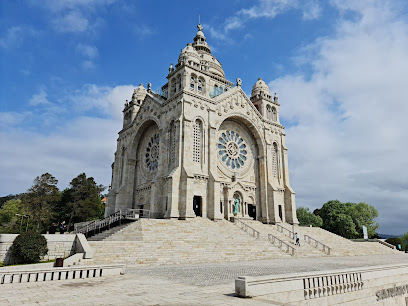
Elevador de Santa Luzia
Experience breathtaking views and rich history at the Elevador de Santa Luzia, Viana do Castelo's iconic funicular offering stunning panoramas of the region.
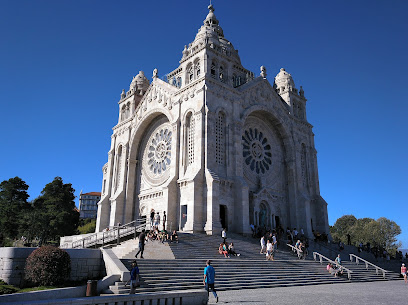
Monte de Santa Luzia
Experience breathtaking views and serene landscapes at Monte de Santa Luzia, a scenic gem in Viana do Castelo, Portugal.
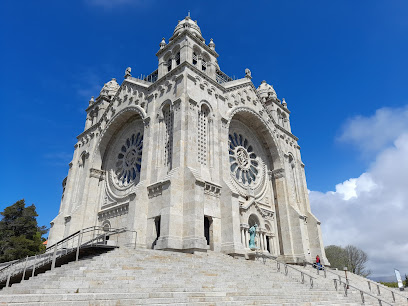
Museu do Traje de Viana do Castelo
Explore the rich tapestry of Portuguese culture at Museu do Traje, showcasing traditional attire and the artistry of Viana do Castelo's heritage.
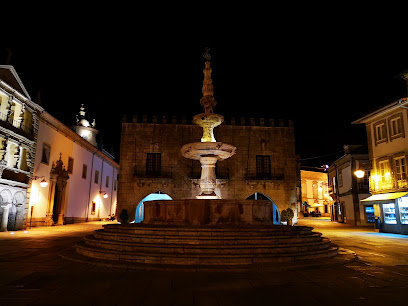
Castelo Santiago da Barra
Explore the historic Castelo Santiago da Barra in Viana do Castelo - a fortress with stunning views and rich maritime heritage.
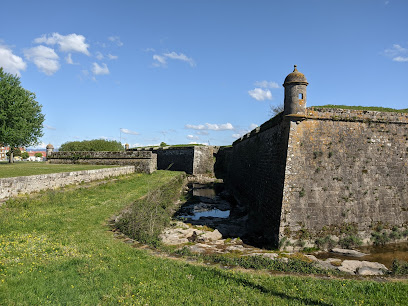
Cultural Center of Viana do Castelo
Discover the rich cultural heritage of Viana do Castelo at its vibrant Cultural Center, where art and community come together in a stunning setting.
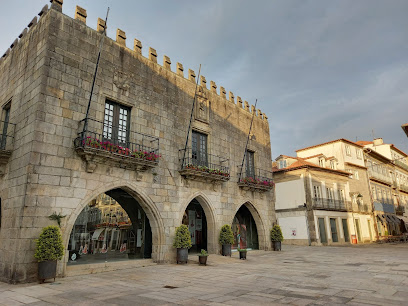
Sé Catedral de Viana do Castelo
Explore the stunning Sé Catedral de Viana do Castelo, a masterpiece of Gothic and Baroque architecture, rich in history and cultural significance.
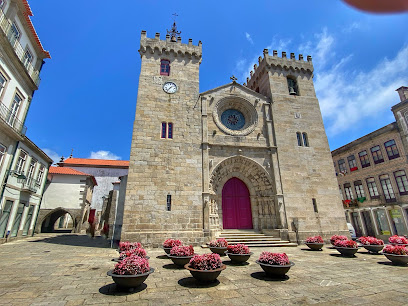
Igreja de São Domingos
Explore the stunning architecture and serene ambiance of Igreja de São Domingos, a must-visit historical and cultural landmark in Viana do Castelo.
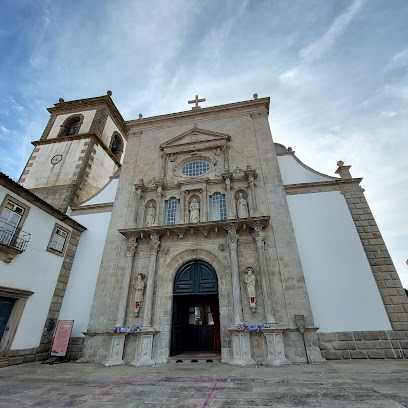
Forte da Areosa
Discover the majestic Forte da Areosa, a historic fortress in Viana do Castelo with stunning ocean views and rich maritime history.
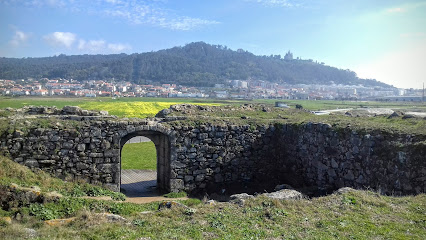
Ponte Eiffel
Experience the stunning Ponte Eiffel in Viana do Castelo, a historic bridge offering breathtaking views and a taste of Portuguese culture.
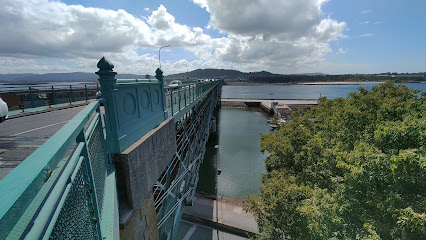
Sanctuary of Our Lady of the Agony
Discover the Sanctuary of Our Lady of the Agony, a stunning Catholic church in Viana do Castelo, blending spirituality and breathtaking views.
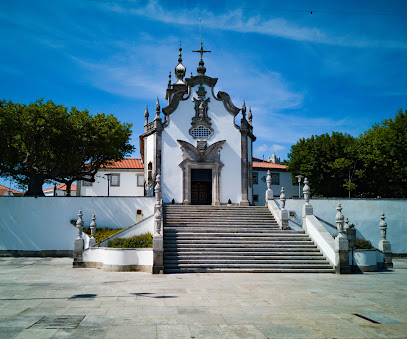
Citânia Santa Luzia
Discover the ancient Celtic heritage at Citania Santa Luzia, a breathtaking archaeological site with stunning views in Viana do Castelo, Portugal.
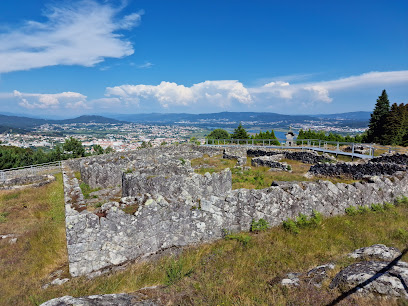
Campo da Agonia
Experience the serene beauty of Campo da Agonia, a picturesque garden in Viana do Castelo, ideal for relaxation and nature exploration.
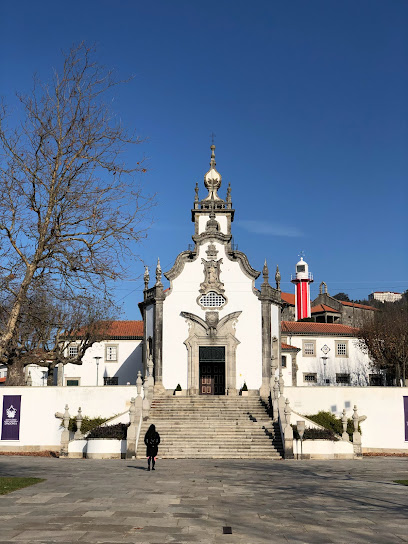
Estatua de Viana
Discover the Estatua de Viana in Viana do Castelo, a magnificent tribute to maritime heritage, set against breathtaking coastal views.
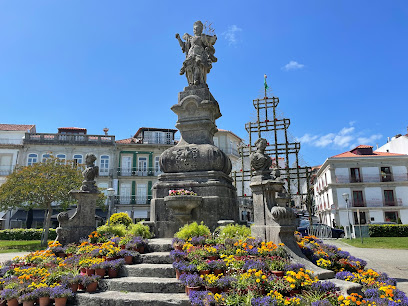
Igreja da Misericórdia
Visit Igreja da Misericórdia in Viana do Castelo for breathtaking architecture and a serene atmosphere steeped in history and culture.
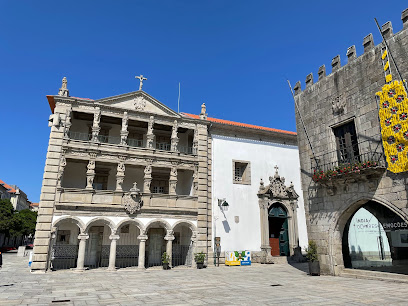
Unmissable attractions to see
Bom Jesus do Monte
Discover the breathtaking Bom Jesus do Monte: a baroque sanctuary with stunning views, rich history, and a peaceful ambiance in Tenões, Portugal.
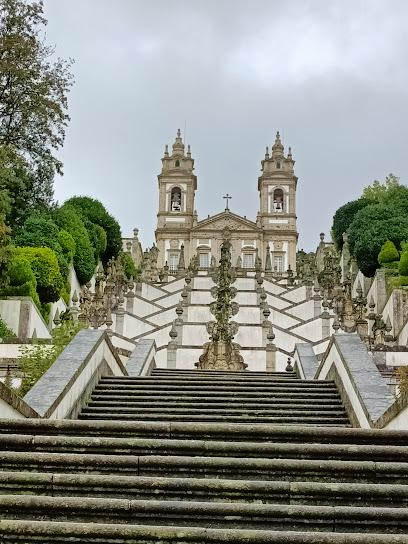
Sanctuary of the Sacred Heart of Jesus / Mount of Santa Luzia
Discover the breathtaking Sanctuary of the Sacred Heart of Jesus on Mount Santa Luzia, where spirituality meets stunning views in Viana do Castelo.
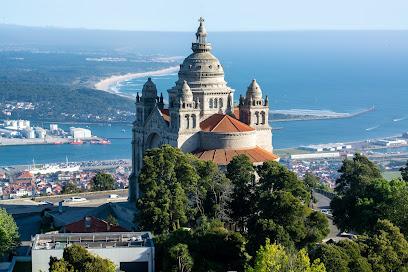
Sanctuary of Our Lady of Sameiro
Discover the Sanctuary of Our Lady of Sameiro, a breathtaking pilgrimage site in Braga, Portugal, known for its stunning architecture and serene landscapes.
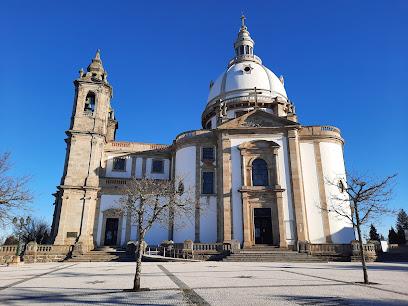
Santa Maria de Braga Cathedral
Explore the Santa Maria de Braga Cathedral, a stunning architectural marvel and a testament to centuries of faith in the heart of Portugal.
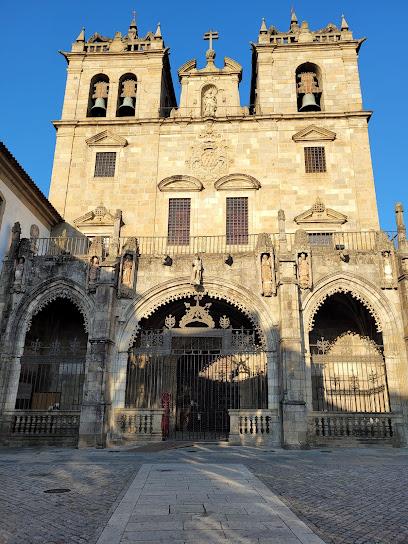
Gil Eannes Foundation
Experience Portugal's maritime history at the Gil Eannes Foundation in Viana do Castelo, a must-visit for cultural and naval enthusiasts.
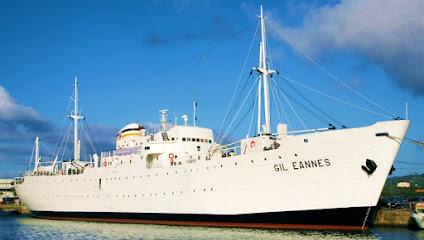
Arco da Porta Nova
Explore the historical Arco da Porta Nova in Braga, a stunning triumphal arch rich in culture and architectural beauty, perfect for your travel itinerary.
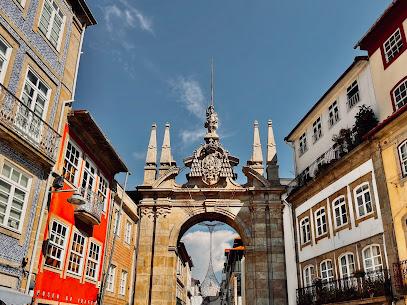
Santa Barbara Garden
Experience the tranquil beauty of Santa Barbara Garden, Braga's botanical oasis filled with vibrant flora and serene landscapes that captivate every visitor.
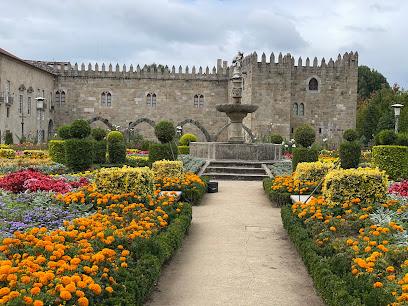
Park Avenida Central
Explore the breathtaking beauty of Park Avenida Central in Braga, a serene urban oasis filled with vibrant gardens and cultural experiences.
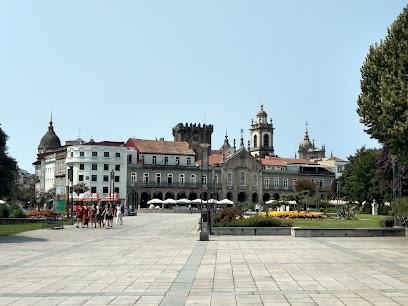
Praia de Ofir
Explore Praia de Ofir, a pristine beach in Portugal, where golden sands meet azure waters for an unforgettable coastal retreat.
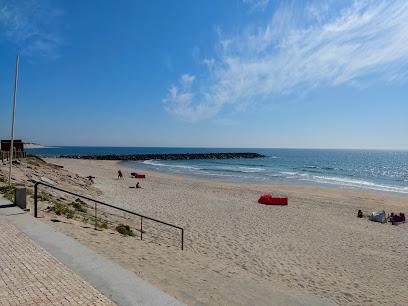
Catedral Tui
Explore the stunning Catedral de Tui, a Gothic masterpiece nestled in the heart of Galicia, steeped in history and architectural beauty.
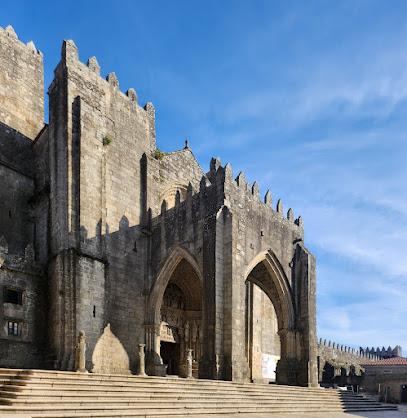
Elevador de Santa Luzia
Experience breathtaking views and cultural richness at Elevador de Santa Luzia in Viana do Castelo, a perfect blend of adventure and serenity.
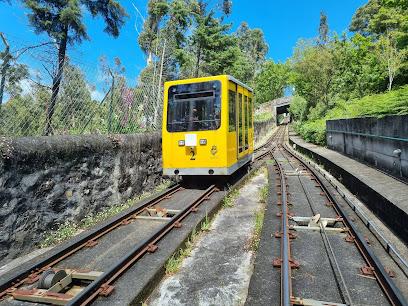
Ponte Romano-Gótica de Ponte de Lima
Explore the stunning Ponte Romano-Gótica de Ponte de Lima, a historical gem that offers breathtaking views and rich cultural heritage in Portugal.
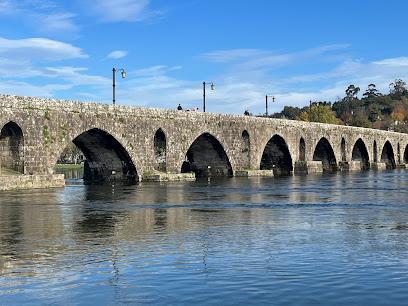
Monastery of São Martinho de Tibães
Explore the serene Monastery of São Martinho de Tibães, a stunning baroque landmark in Portugal that offers a glimpse into the nation's rich monastic heritage.
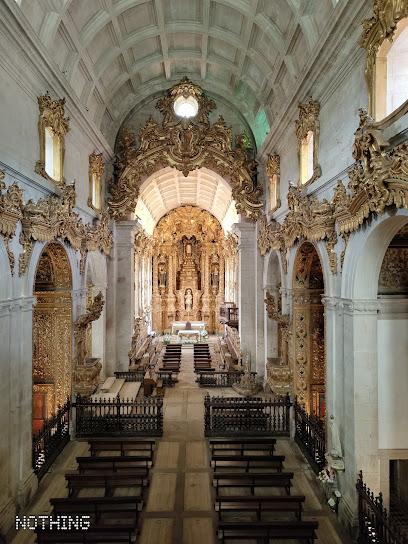
Praia do Cabedelo
Discover the stunning Praia do Cabedelo in Darque, a picturesque beach perfect for relaxation, adventure, and enjoying the beauty of Portugal's coastline.
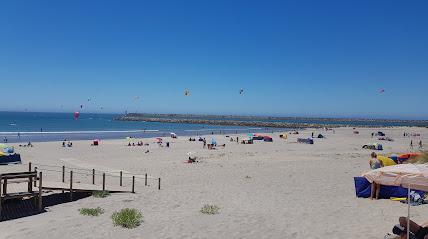
Ponte de Barcelos
Explore the Ponte de Barcelos, a historic medieval bridge offering stunning views and rich cultural significance in the heart of Barcelos, Portugal.
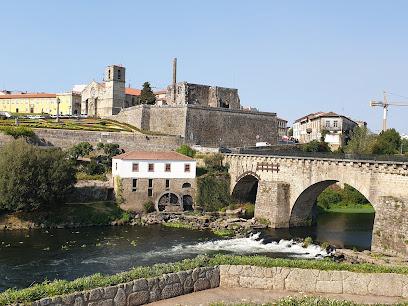
Essential places to dine
Aquário
Discover Aquário in Darque - where fresh seafood meets vibrant atmosphere for an unforgettable dining experience.
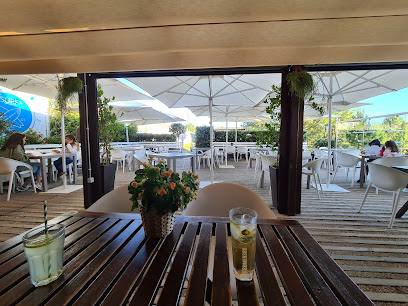
Restaurante Camelo
Discover authentic Portuguese cuisine at Restaurante Camelo in Viana do Castelo – a must-visit for food lovers exploring this beautiful coastal town.
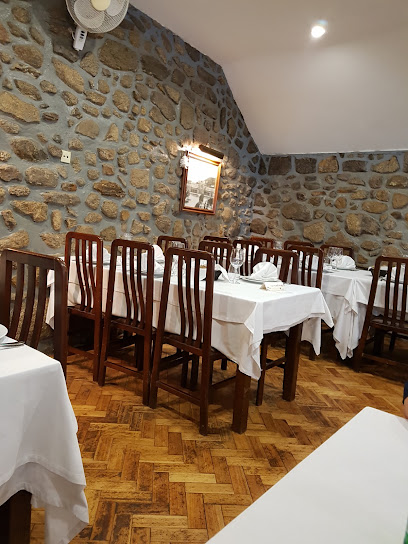
Scala caffe
Discover Scala Caffe: A delightful restaurant in Viana do Castelo serving delicious Portuguese cuisine with stunning ocean views.
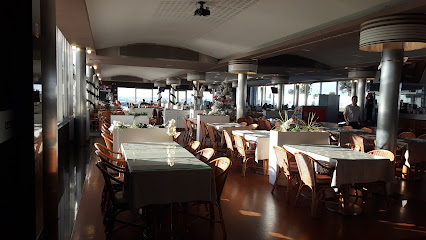
Casa Primavera - Taberna Soares
Experience authentic Portuguese flavors at Casa Primavera - Taberna Soares in Viana do Castelo.
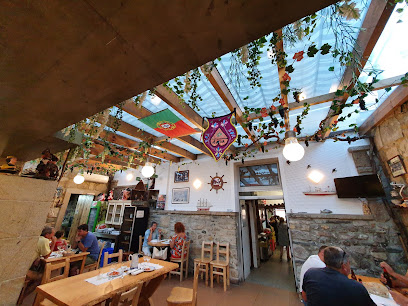
Restaurante Coral
Experience authentic Portuguese cuisine at Restaurante Coral in Viana do Castelo - where fresh seafood meets warm hospitality.
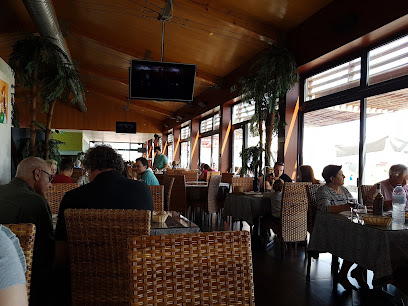
Restaurante Tasquinha da Linda
Experience authentic Portuguese flavors at Restaurante Tasquinha da Linda in Viana do Castelo – where tradition meets taste.
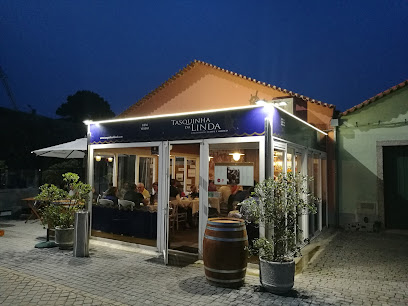
Foz Viana
Discover Foz Viana: where authentic Portuguese cuisine meets breathtaking coastal views in Viana do Castelo.
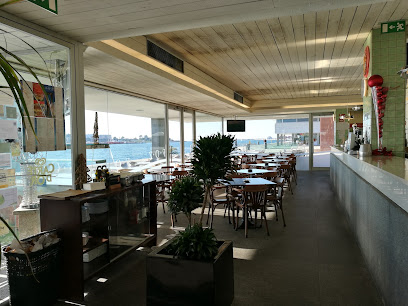
Cerqueira’s Lounge & Restaurant
Discover Cerqueira’s Lounge & Restaurant in Viana do Castelo - where traditional Portuguese cuisine meets innovative fusion flavors in a vibrant setting.
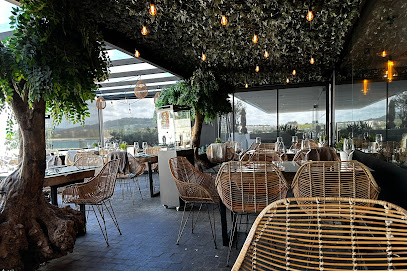
Tasquinha da Praça
Experience authentic Portuguese cuisine at Tasquinha da Praça in Viana do Castelo—where every dish is a taste of tradition.
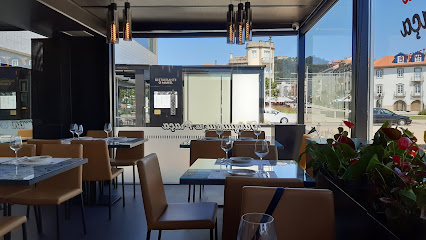
O Tabernão
Experience authentic Portuguese tapas at O Tabernão in Viana do Castelo – where tradition meets flavor in every bite.
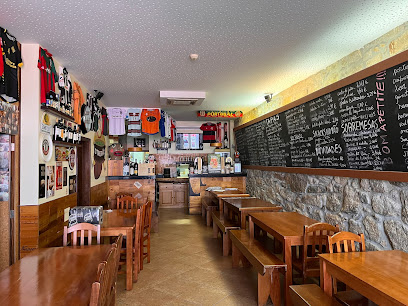
O Vasco - Restaurante
Experience authentic Portuguese flavors at O Vasco - a must-visit restaurant in Viana do Castelo offering exquisite dishes and warm hospitality.
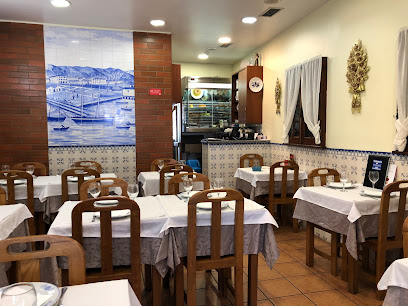
O Pescador
Experience the finest seafood dishes at O Pescador in Viana do Castelo - where local flavors meet warm hospitality.
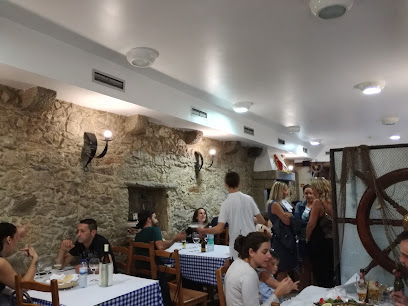
Casa de Pasto Maria de Perre
Discover authentic Portuguese flavors at Casa de Pasto Maria de Perre in Viana do Castelo – where tradition meets taste.
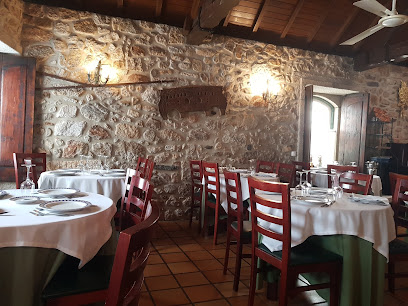
Pecado Capital
Discover Pecado Capital: A culinary haven in Viana do Castelo serving exquisite Portuguese cuisine in a warm and inviting atmosphere.
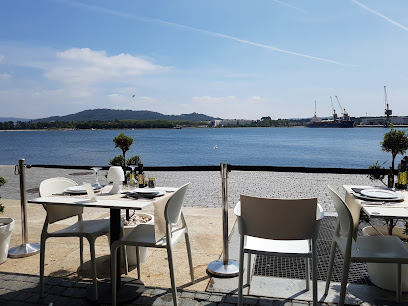
O Manel
Experience authentic Portuguese flavors at O Manel in Viana do Castelo—where tradition meets modern cuisine.
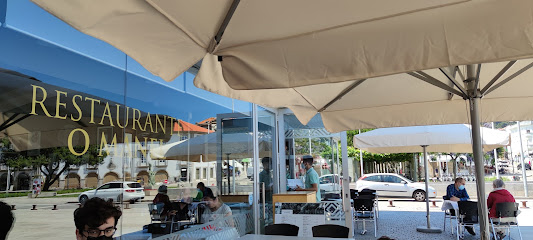
Markets, malls and hidden boutiques
Estação Viana Shopping
Explore Estação Viana Shopping in Viana do Castelo, a vibrant hub for shopping, dining, and entertainment, perfect for every tourist's itinerary.
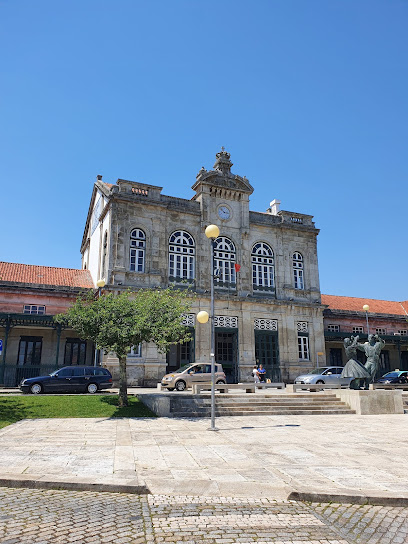
FNAC
Explore a diverse selection of books, electronics, and more at FNAC in Viana do Castelo's bustling shopping hub.
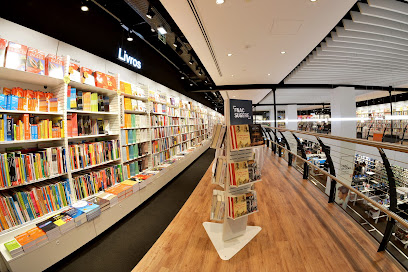
Sport Zone Viana do Castelo
Shop for the best sportswear and gear at Sport Zone Viana do Castelo, your go-to destination for outdoor adventures in Portugal's beautiful coastal city.
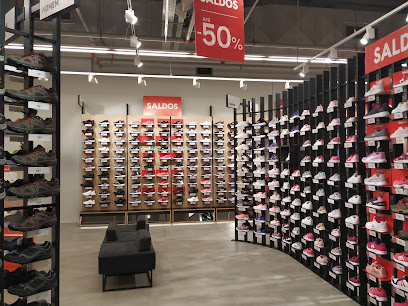
ZARA
Explore ZARA in Viana do Castelo for the latest fashion trends and stylish apparel at moderate prices, perfect for all shoppers.
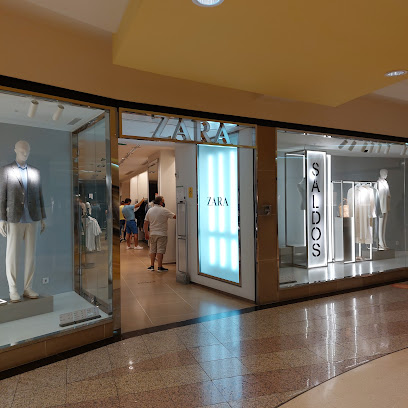
CASA Viana do Castelo
Explore CASA Viana do Castelo, a unique gift shop in Darque offering exquisite home goods, garden furniture, and kitchen supplies for every taste.
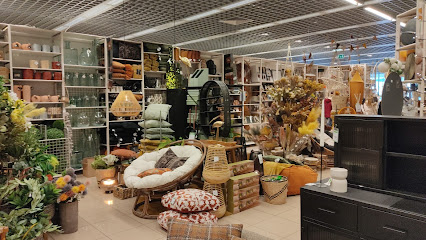
FAIRY TALE - CONTO DE FADAS
Explore the enchanting Fairy Tale - Conto de Fadas in Viana do Castelo for unique collectibles that capture the magic of nostalgia.
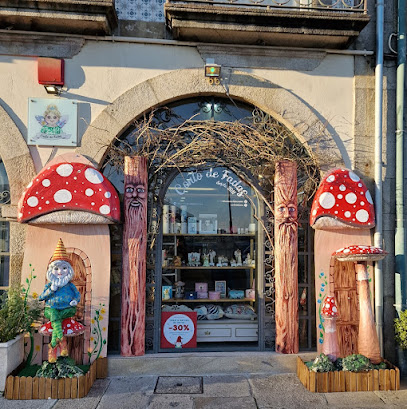
Ferrache - Loja Viana do Castelo
Explore Ferrache, Viana do Castelo's chic clothing store, featuring local styles and unique Portuguese fashion designs for every taste.
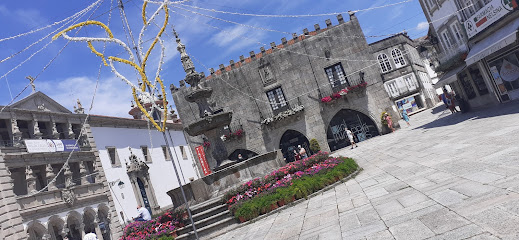
C&A
Explore the latest fashion trends at C&A in Viana do Castelo, offering stylish clothing for the whole family at great prices.
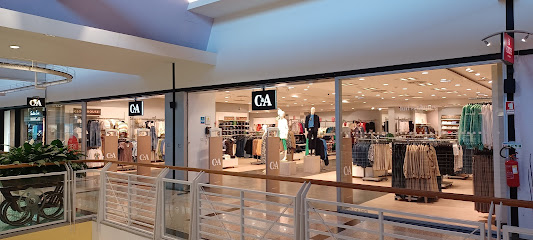
BC Viana Co. Surf & Skate
Discover the ultimate surf and skate experience at BC Viana Co. in Viana do Castelo, where adventure awaits and community thrives.
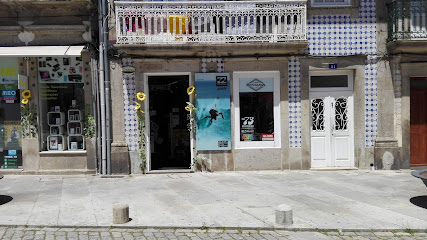
Baú das Marias
Explore the unique offerings at Baú das Marias, your go-to destination for oriental goods, wellness supplies, and spiritual treasures in Viana do Castelo.
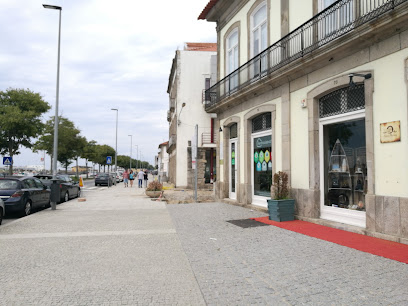
Parfois
Explore the latest trends at Parfois, Viana do Castelo's premier destination for fashion accessories, clothing, and more.

Stradivarius
Discover the latest women's fashion trends at Stradivarius in Viana do Castelo, where style meets quality in every piece.
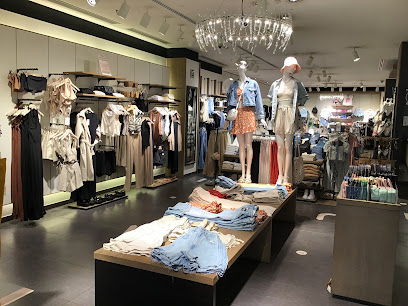
Lion of Porches Estação Viana
Explore the stylish offerings at Lion of Porches Estação Viana, where modern fashion meets Portuguese craftsmanship in a vibrant shopping center.

MANGO
Explore the latest trends in women's fashion at MANGO in Viana do Castelo – where style meets quality in every piece.
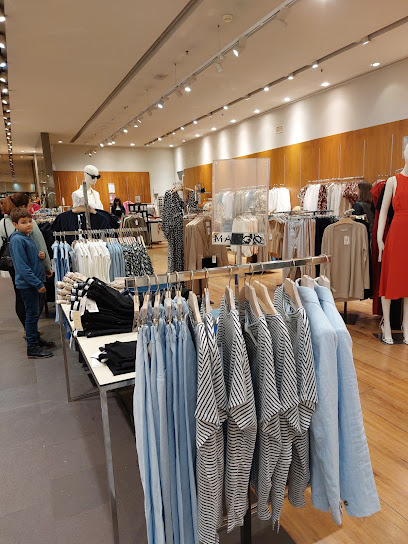
note! Viana do Castelo - Estação Viana Shopping
Discover the artistic charm of Viana do Castelo at Estação Viana Shopping, a unique craft and book store showcasing local creativity.
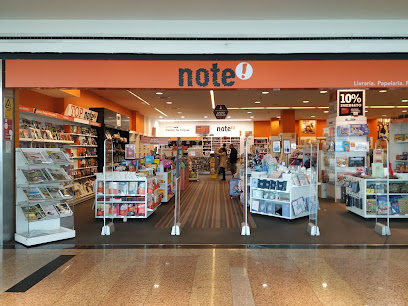
Essential bars & hidden hideouts
Irish Pub
Discover the vibrant atmosphere of an authentic Irish pub at Viana do Castelo, where good food, great drinks, and live music await you.
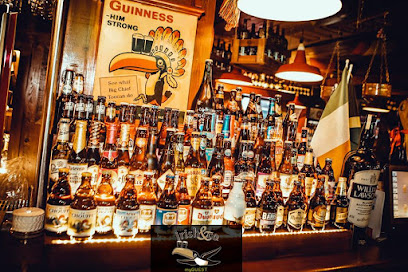
Café Paris
Discover the charm of Café Paris in Viana do Castelo, where local flavors meet a vibrant atmosphere for an unforgettable experience.
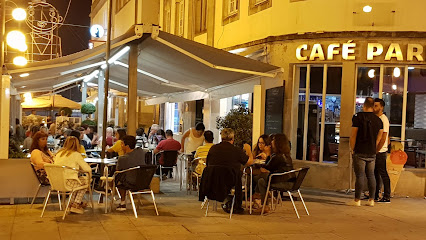
Melro bar
Experience the heart of Viana do Castelo at Melro Bar, where great drinks and friendly vibes await you.
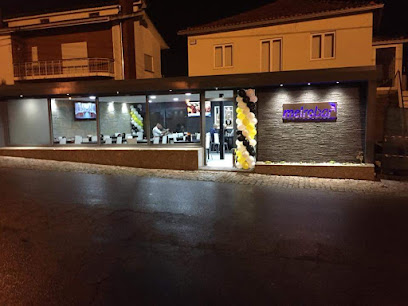
Ribeiro's Brewers
Experience the best of Viana do Castelo's craft beer scene at Ribeiro's Brewers, where local flavors and a cozy atmosphere await.
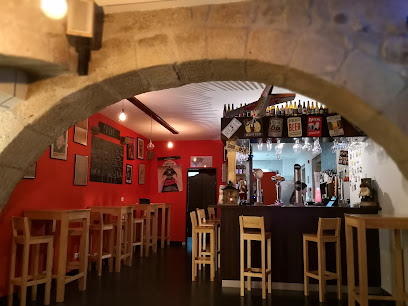
Liz Caffe Bar
Discover the lively vibes of Liz Caffe Bar in Viana do Castelo, where affordable drinks and a warm atmosphere await every visitor.
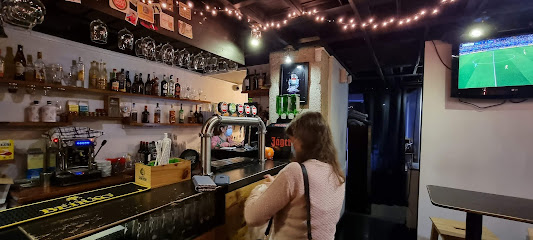
DCB - Double Bar Concept
Experience the vibrant nightlife at DCB - Double Bar Concept in Viana do Castelo, where every drink tells a story.
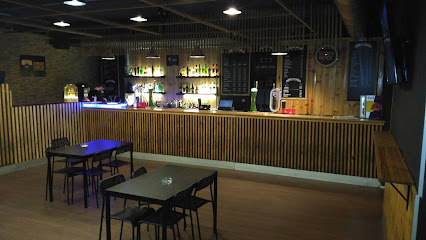
República Caffe Bar
Experience the vibrant nightlife of Viana do Castelo at República Caffe Bar, a local favorite for drinks and socializing.
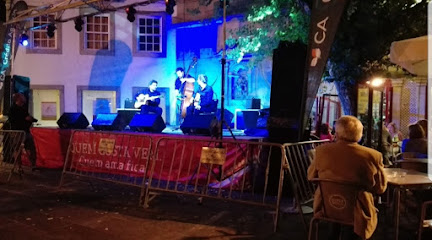
Poço - Bar & Petiscos, Lda
Experience the best of Portuguese cuisine at Poço - Bar & Petiscos in Viana do Castelo, where authentic tapas meet vibrant nightlife.
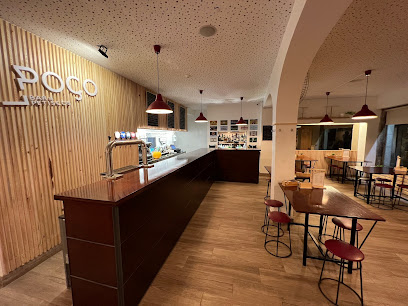
Cave Avenida
Experience the lively nightlife of Viana do Castelo at Cave Avenida, a vibrant bar serving a variety of drinks and hosting exciting events.
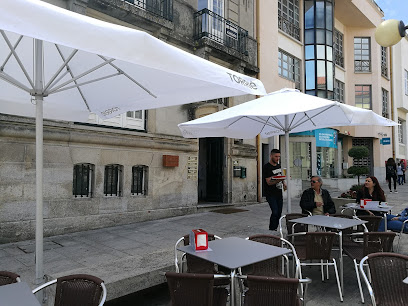
Bar Pôr do Sol
Experience breathtaking sunsets and a vibrant atmosphere at Bar Pôr do Sol in Viana do Castelo, a must-visit for every traveler.
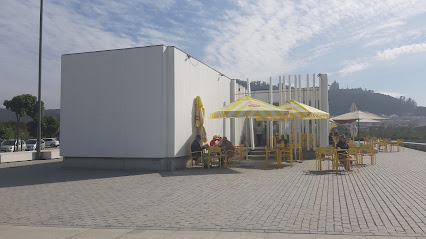
Bar Porta 93
Experience the vibrant nightlife of Viana do Castelo at Bar Porta 93, where great drinks and a lively atmosphere await you.
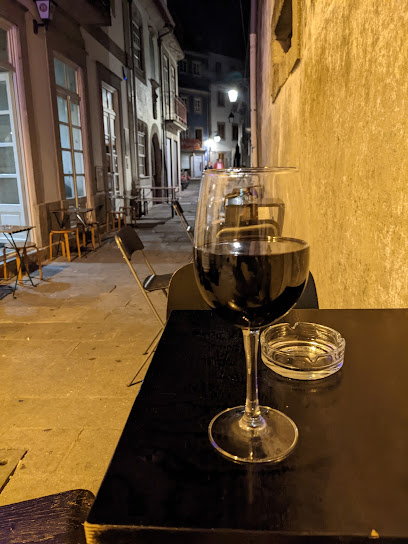
Docas Bar
Discover the charm of Docas Bar, a riverside haven in Viana do Castelo, perfect for drinks and snacks in a cozy atmosphere.
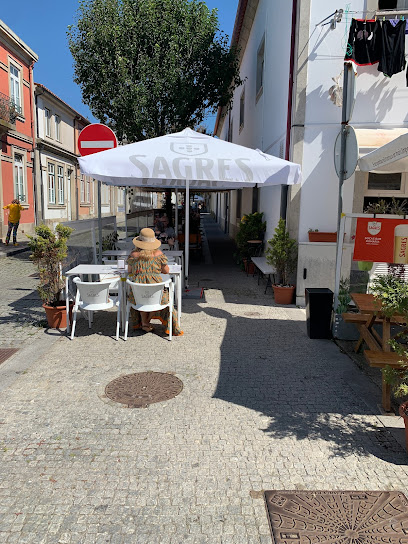
Palco Do Picadeiro
Discover the vibrant nightlife and cultural artistry of Palco Do Picadeiro in Viana do Castelo, where every visit is a unique experience.
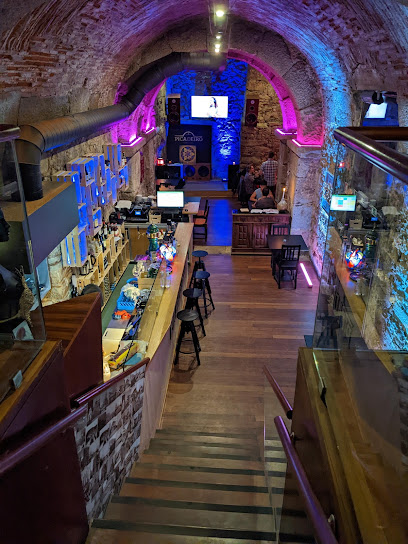
Cais Club & Lounge
Discover the vibrant nightlife at Cais Club & Lounge, the premier bar and disco club in Viana do Castelo, where fun meets unforgettable experiences.
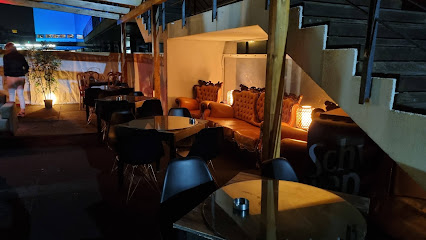
Travel experiences inspired by this city
Explore more travel diariesLocal Phrases
-
- HelloOlá
[oh-lah] - GoodbyeAdeus
[ah-deh-oosh] - YesSim
[seem] - NoNão
[now] - Please/You're welcomePor favor/De nada
[por fah-vohr/deh nah-dah] - Thank youObrigado
[oh-bree-gah-doo] - Excuse me/SorryCom licença/Desculpe
[kohm lee-sehn-sah/deh-skool-peh] - How are you?Como está?
[koh-moh ehs-tah] - Fine. And you?Estou bem. E você?
[eh-stohu bayn/eh voh-seh] - Do you speak English?Fala inglês?
[fah-lah een-glehsh] - I don't understandNão entendo
[now ehn-tehn-doo]
- HelloOlá
-
- I'd like to see the menu, pleaseGostaria de ver o menu, por favor
[goh-stah-ree-ah deh vehr oo meh-noo/por fah-vohr] - I don't eat meatNão como carne
[now koh-moh kahr-neh] - Cheers!Saúde!
[sow-deh] - I would like to pay, pleaseGostaria de pagar, por favor
[goh-stah-ree-ah deh pah-gahr/por fah-vohr]
- I'd like to see the menu, pleaseGostaria de ver o menu, por favor
-
- Help!Ajuda!
[ah-joo-dah] - Go away!Vai embora!
[vahy ehm-boh-rah] - Call the Police!Chame a Polícia!
[shah-meh ah poh-lee-see-ah] - Call a doctor!Chame um médico!
[shah-meh oom meh-dee-koo] - I'm lostEstou perdido
[eh-stohu pehr-dee-doo] - I'm illEstou doente
[eh-stohu doh-ehn-teh]
- Help!Ajuda!
-
- I'd like to buy...Gostaria de comprar...
[goh-stah-ree-ah deh kohm-prahr] - I'm just lookingEstou só a ver
[eh-stohu soh ah vehr] - How much is it?Quanto custa?
[kwahn-too koosh-tah] - That's too expensiveIsso é muito caro
[ee-soh eh moo-ee-toh kah-roo] - Can you lower the price?Pode baixar o preço?
[poh-deh bahy-shahr oo preh-soo]
- I'd like to buy...Gostaria de comprar...
-
- What time is it?Que horas são?
[keh oh-rahsh sah-ooh] - It's one o'clockÉ uma hora
[eh oo-mah oh-rah] - Half past (10)Meia (10) / Meio-dia e meia
[may-ah (deez/ deeya e may-ah] - MorningManhã
[mah-nyah] - AfternoonTarde
[tahr-deh] - EveningNoite
[noy-teh] - YesterdayOntem
[ohn-tehm] - TodayHoje
[oh-zheh] - TomorrowAmanhã
[ah-mahn-yah] - 1Um
[oom] - 2Dois
[doysh] - 3Três
[trehs] - 4Quatro
[kwah-troo] - 5Cinco
[seen-koh] - 6Seis
[saysh] - 7Sete
[seh-teh] - 8Oito
[oy-toh] - 9Nove
[noh-veh] - 10Dez
[dehsh]
- What time is it?Que horas são?
-
- Where's a/the...?Onde fica o/a...?
[ohn-deh fee-kah oo/ah] - What's the address?Qual é a morada?
[kwahl eh ah moh-rah-dah] - Can you show me (on the map)?Pode mostrar-me (no mapa)?
[poh-deh moh-shtr-meh/noo mah-pah] - When's the next (bus)?Quando é o próximo (autocarro)?
[kwahn-doo eh oo proh-ksee-moo/ow-too-kah-roo] - A ticket (to ....)Um bilhete (para ....)
[oom beel-yeh-teh/pah-rah]
- Where's a/the...?Onde fica o/a...?
History of Viana do Castelo
-
Viana do Castelo's origins trace back to Roman times, with archaeological remains indicating a bustling settlement. Officially founded in 1258 by King Afonso III, the city quickly became a significant port due to its strategic location at the mouth of the Lima River.
-
During the 15th and 16th centuries, Viana do Castelo flourished as a prominent maritime hub. The city's shipbuilding industry thrived, contributing significantly to Portugal's Age of Discoveries. Notable explorers, such as João Álvares Fagundes, hailed from this region.
-
The construction of the Santa Luzia Basilica in the early 20th century stands as a testament to Viana do Castelo's rich religious heritage. The basilica, inspired by the Sacré-Cœur in Paris, offers panoramic views of the city and symbolizes its architectural grandeur.
-
The 19th century marked a period of economic transformation for Viana do Castelo. The introduction of the railway in 1878 connected the city more effectively to the rest of Portugal, fostering industrial growth and expanding its shipbuilding capabilities.
-
Viana do Castelo is renowned for its vibrant cultural festivals, particularly the annual Romaria de Nossa Senhora da Agonia. Celebrated in August, this festival features traditional costumes, parades, and music, reflecting the city's rich cultural tapestry and deep-rooted traditions.
-
In recent decades, Viana do Castelo has embraced modernity while preserving its historical charm. The city has become a popular tourist destination, attracting visitors to its medieval architecture, pristine beaches, and the scenic beauty of the surrounding Minho region.
Viana do Castelo Essentials
-
Viana do Castelo is located in the northern region of Portugal, approximately 75 kilometers from Porto. The nearest international airport is Francisco Sá Carneiro Airport (OPO) in Porto. From Porto, you can take a direct train or bus to Viana do Castelo. The train journey takes about 1.5 hours, while the bus ride is approximately 2 hours. Alternatively, you can rent a car and drive via the A28 highway, which takes around 1 hour.
-
Viana do Castelo has a range of transportation options for getting around. The city is well-served by taxis and local buses. The train station and bus terminal are centrally located, making it easy to explore nearby towns and attractions. For a more flexible option, consider renting a car. Bicycles are also a popular mode of transport, and the city has several bike rental shops. Walking is a pleasant way to explore the historical center and waterfront areas.
-
The official currency in Portugal is the Euro (EUR). Credit and debit cards are widely accepted in hotels, restaurants, and shops. ATMs are readily available throughout Viana do Castelo, so withdrawing cash is convenient. It's advisable to carry some cash, especially for small purchases in local markets or for public transport. Keep an eye on exchange rates if you need to convert foreign currency.
-
Viana do Castelo is generally a safe city for tourists. However, like any travel destination, it's important to take standard precautions. Be mindful of your belongings in crowded areas and avoid displaying valuables openly. The city center and popular tourist areas are usually safe, but it's best to avoid poorly lit or deserted areas at night. There are no specific high-crime neighborhoods targeting tourists, but staying vigilant is always recommended.
-
In case of emergency, dial 112 for immediate assistance. This number connects you to police, fire, and medical services. Viana do Castelo has a local hospital, the Hospital de Santa Luzia, which provides emergency medical care. Pharmacies are available for minor health issues, and many staff members speak English. It is recommended to have travel insurance that covers medical emergencies.
-
Fashion: Do dress comfortably, but remember that modest attire is appreciated, especially when visiting religious sites. Avoid overly revealing clothing. Religion: Do respect local customs and traditions. When visiting churches, dress modestly and keep noise to a minimum. Public Transport: Do validate your ticket before boarding buses and trains. Don't eat or drink on public transport. Greetings: Do greet locals with a handshake or a simple 'Olá'. A friendly attitude is appreciated. Eating & Drinking: Do try local dishes and wines. Don't rush meals; savor the experience, as dining is an important aspect of Portuguese culture.
-
To experience Viana do Castelo like a local, visit the weekly market at Praça da República, where you can buy fresh produce and traditional goods. Explore the city's historic center on foot, and take a funicular ride up to the Basilica of Santa Luzia for stunning panoramic views. Engage with locals, as they are friendly and often willing to share insights about their city. Don't miss the local festivals, especially the Romaria de Nossa Senhora d'Agonia in August, which showcases vibrant cultural traditions.
Trending Landmark in Viana do Castelo
-
Sanctuary of the Sacred Heart of Jesus / Mount of Santa Luzia
-
Elevador de Santa Luzia
-
Monte de Santa Luzia
-
Museu do Traje de Viana do Castelo
-
Castelo Santiago da Barra
-
Cultural Center of Viana do Castelo
-
Sé Catedral de Viana do Castelo
-
Igreja de São Domingos
-
Forte da Areosa
-
Ponte Eiffel
-
Sanctuary of Our Lady of the Agony
-
Citânia Santa Luzia
-
Campo da Agonia
-
Estatua de Viana
-
Igreja da Misericórdia
Nearby Cities to Viana do Castelo
-
Things To Do in Ponte de Lima
-
Things To Do in Braga
-
Things To Do in Guimarães
-
Things To Do in Porto
-
Things To Do in Vila Real
-
Things To Do in Lamego
-
Things To Do in Chaves
-
Things To Do in Aveiro
-
Things To Do in Santiago de Compostela
-
Things To Do in Coimbra
-
Things To Do in Bragança
-
Things To Do in Tomar
-
Things To Do in Caldas da Rainha
-
Things To Do in Viseu
-
Things To Do in Salamanca



















